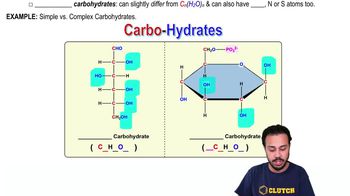Textbook Question
List the structural features in a prokaryotic cell.
2449
views

 Belk, Maier 6th Edition
Belk, Maier 6th Edition Ch. 2 - Science Fiction, Bad Science, and Pseudoscience
Ch. 2 - Science Fiction, Bad Science, and Pseudoscience Problem 1
Problem 1 Verified step by step guidance
Verified step by step guidance



List the structural features in a prokaryotic cell.
Add labels to the figure that follows, which illustrates the subatomic particles associated with a carbon atom.
Water ________.
a. Is a good solute.
b. Facilitates chemical reactions.
c. Serves as an enzyme.
d. Makes strong covalent bonds with other molecules.
e. Consists of two oxygen and one hydrogen atoms.